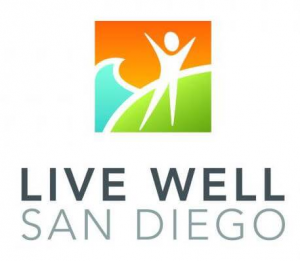 Postpartum depression (PPD) is a complex and often misunderstood mental health condition that affects many individuals after giving birth. Postpartum depression often starts in the early weeks after having a baby, but can happen at any time, even many months later. It’s defined as occurring any time in the year after giving birth. Perinatal depression may also develop before birth, too. It’s common, (the most common postpartum complication) and affects up to 1 in 7 people after giving birth.
Postpartum depression (PPD) is a complex and often misunderstood mental health condition that affects many individuals after giving birth. Postpartum depression often starts in the early weeks after having a baby, but can happen at any time, even many months later. It’s defined as occurring any time in the year after giving birth. Perinatal depression may also develop before birth, too. It’s common, (the most common postpartum complication) and affects up to 1 in 7 people after giving birth.
10 Common Signs of Postpartum Depression:
- Persistent sadness or mood swings
- Loss of interest or pleasure
- Fatigue and loss of energy
- Changes in appetite and weight
- Sleep disturbances
- Irritability, agitation, or anger
- Anxiety and restlessness
- Difficulty bonding with the baby
- Feelings of worthlessness or guilt
- Physical symptoms (like stomach, head, and muscle aches that have no other clear cause)
Experiencing these symptoms does not mean you necessarily have postpartum depression, but these are things to look out for. Many of these symptoms are common in general after giving birth, but the severity and longevity of the symptoms are important. If you experience any of these symptoms and they’re persistent and interfere with your daily functioning, you may have postpartum depression.
Postpartum depression is not the same as “baby blues,” which is the term that is used to describe the normal and expected emotional turbulence after having a baby. Feeling more emotional, tired, and anxious right after you give birth is normal after such a huge physical and emotional experience. The “baby blues” should resolve on their own within a few weeks and shouldn’t be so severe they affect your normal functioning. If symptoms persist or feel more severe, it’s important to reach out to your provider for more support.
Knowing the signs and symptoms of perinatal mood disorders like postpartum depression is crucial. Many people who experience PPD have no prior history of depression when they’re not pregnant. PPD can affect anyone. Perinatal mood disorders can also develop while you’re still pregnant. They’re not limited to the birthing parent either. Although it’s less talked about, partners that did not give birth can also develop postpartum depression too. Postpartum depression can also affect surrogate and adoptive parents.
Providers often use a questionnaire at postpartum check-ups to screen for postpartum depression, but people who need help can still slip through the cracks. Especially because postpartum depression can develop at any time (so you may feel fine at your appointment, then be struggling a few weeks later). The timing aspect coupled with the unfortunate fact that many people feel ashamed to admit they’re struggling means it’s hard to catch everyone who needs help if they don’t reach out more intentionally.
Treatment for PPD is most effective when you get help early and it can include a variety of methods like therapy, medication, and support groups. Because quality of sleep can be a big factor in perinatal mood disorders, there’s promising evidence that sleep adjustments and light therapy may be helpful to some people too. Whatever you may need, the first step is reaching out to your provider for help navigating the process.
Best Start Birth Center provides free lactation & postpartum support open to the community. Know that if you ever experience PPD, you are not alone. Just as you were strong and capable of carrying and birthing your child, you are strong and capable of overcoming this, too. This part of your motherhood journey does not define you and it too shall pass. Pregnancy and motherhood are amazing AND hard too. You can be overjoyed about your little one AND struggle with depression too. Both things can be true at the same time. We’re here for you and all the parts of your journey of motherhood, the good and the difficult.





